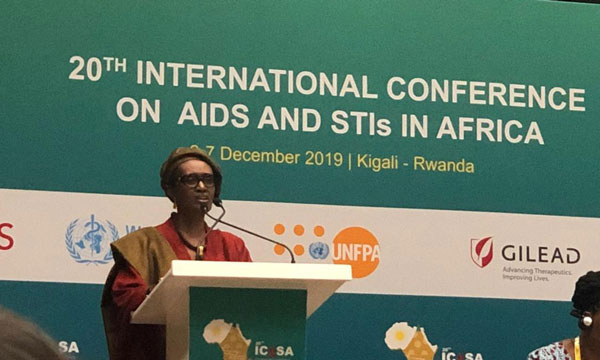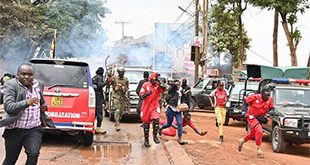
Kampala, Uganda | THE INDEPENDENT | The Joint United Nations Programme on HIV/AIDS (UNAIDS) Executive Director, Winnie Byanyima has emphasized the need for communities to take part in the fight against HIV.
This is carried in her press statement issued as the World today commemorates the World AIDs Day under the theme “Communities making a Difference.”
“I believe in communities. Communities make change happen. Communities are the best hope for ending AIDS because communities have fought against HIV right from the beginning! As the epidemic raged through our countries, cities, villages, women held communities together and bore the higher burden of care for their families. For far too long we have taken their volunteerism for granted,” reads part of Byanyima’s statement.
She says that without communities, 24 million people would not be on treatment today and that without communities led by women living with and affected by HIV, the world would not be close to ending new HIV infections among children, raising orphans and caring for the sick.
“Twenty-five years ago, a Burundi woman called Jeanne was the first person to disclose that she was living with HIV. Today, Jeanne is holding leaders accountable and fighting for the right to health care. Pioneers like Jeanne have been joined by younger leaders, like 20-year-old Yana, who was born with HIV in Ukraine. Yana founded Teenergizer, a group bringing together young people across Eastern Europe. In a world where power resides with old men, she wants her peers to have a voice and a choice,” says Byanyima.
She also cites Consider Fiacre, who lives in Central African Republic, displaced by conflict along with thousands of others. Byanyima says that Fiacre cycles to a clinic, crossing barriers and checkpoints to collect anti retroviral medicines for him and members of a group he belongs to. The UNAIDS Executive Director says that without this support, each person would have to make the dangerous journey on their own.
She says these examples show that communities make the difference all over the world but that the way communities are being taken for granted has to change.
She appeals to governments to live up to their promises about the fight against the killer disease. Some if the promises are the commitment to at least 30% of HIV services being community-led and the 6% of all HIV funding going to community mobilization, promoting human rights and changing harmful laws that act as barriers to ending AIDS.
*****
URN
 The Independent Uganda: You get the Truth we Pay the Price
The Independent Uganda: You get the Truth we Pay the Price


